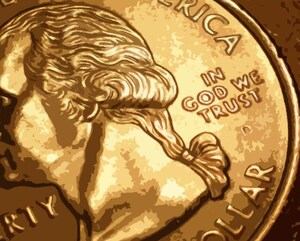Render unto the economy what is God’s
Moments when schoolwork and real life collide are weirdly pleasurable. Such was the experience while I was reading a recent story titled “Satan, the great motivator,” published by The Boston Globe on “the curious economic effects of religion.”

Rita Yeung | Daily Trojan
Immediately, my political philosophy class popped into my head, specifically in the form of Max Weber. When Weber was referenced later in the piece, I knew my education had not betrayed me.
Students of the field may recall, painfully, the name Weber, an obscure, hard-to-understand German philosopher whose legacy-defining “aha” moment was his flashy but much-criticized conclusion that Protestantism birthed modern capitalism. He published his thesis in a book-length essay now more than a century old.
Time has not been kind to old Weber. Much of his work has been dismissed as methodologically flawed, and professors won’t devote more than a few classes, if that, to the study of his contributions to sociology.
But if Michael Fitzgerald over at the Globe did his reporting right, Weber may have been on to something. The problem is that most people will use the findings to stress the need for religion in society — not as a fresh perspective for American economists.
Fitzgerald’s piece, published last month, basically reiterates the essence of Weber’s anti-Marxist thesis: Religion can indeed influence economic behavior. A new study from Harvard shows a strong correlation in developing countries “between economic growth and certain shifts in belief.”
“Most strikingly,” Fitzgerald said, “if belief in hell jumps up sharply while actual church attendance stays flat, it correlates with economic growth … Meanwhile, if church attendance actually rises, it slows growth in developing economies.”
It smells a lot like America’s sketchy stay-at-home religiosity: Believe in hell and salvation, but leave church for the old folks.
Apparently it works from an economic standpoint, which makes sense. Hardworking entrepreneurs don’t have time for public worship.
The Harvard study has started economists off on a new re-evaluation of religion’s role in economic development, with several new findings claiming that religious values are economically beneficial.
Trouble is, we’re getting slightly overexcited here, and a re-evaluation of the re-evaluation is clearly in order. The implications of these new findings are hard to understand and remarkably easy to misinterpret.
According to Fitzgerald, researchers in the United States reportedly showed that “religion reduces corruption and increases respect for law in ways that boost overall economic growth.” This seems faulty.
Skepticism feels like the right policy at the moment, especially with examples like this last one — semi-novel notions built on shaky, unprovable premises.
Here, our researchers have set up a weak correlation between two distant variables, much as Weber did more than a century earlier.
Once we make that literal leap of faith between religion’s influence and economic prosperity, we suddenly concede the scary possibility that the cure for economic woes is an even wider-spread religious fervency both here and abroad, where that same religiosity is often at the heart of domestic unrest.
And who’s to say people won’t take these spurious claims even further, to the point where they start believing — and researchers start proving — that religion is the final panacea for every earthly problem?
Churches, or any other religious institution, do not need that kind of scientific approval.
None of us should balk at the obvious notion that religion increases respect for law — being repeatedly beaten over the head with, say, the Ten Commandments, will have that socially beneficial effect — but work in this field is still preliminary, and should be regarded with a certain caution.
The value of the new studies is not necessarily in what they mean for religion, but rather in what they mean for economics.
Until now, economists have not spent sufficient time considering the implications of other fields of study — psychology, sociology and indeed theology — in economic behavior.
Studies like these point to a widening out of economic perspective, which seems essential if we are to get at a fuller understanding of what drives economic development.
“Today, as researchers start to answer the question more definitively with the tools of modern economics,” Fitzgerald writes, “what’s emerging is a clearer picture of how nations’ prosperity can depend, in part, on seemingly abstract concerns like theology — and sometimes on quite nuanced points of belief or religious fervor.”
Clearly. But we must be wary of taking that too far — or we risk losing favor with God, who, after all, doesn’t seem to think too highly of material wealth.
Jason Kehe is a sophomore majoring in print journalism. His column, “Small Wonder,” ran every other Wednesday.

If I may be so bold, God wants his followers to be wealthy. However, God does not want wealth to become a replacement for Creator worship. Remember the Creator of all things made wealth also.